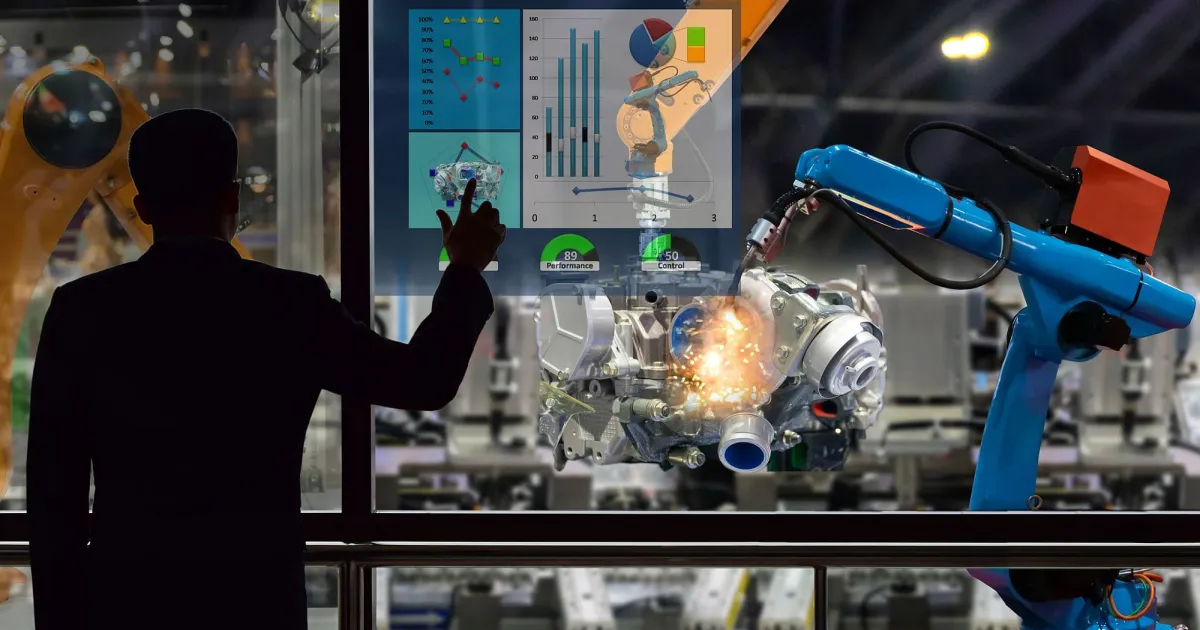In today’s fast-paced world, the integration of AI in real-time QA decisioning has become a game-changer for industries worldwide. This cutting-edge technology is reshaping how businesses approach quality assurance, ensuring products meet the highest standards while reducing costs and improving efficiency. But what is AI in real-time QA decisioning, and how does it transform the quality assurance landscape?

Understanding AI in Real-Time QA Decisioning
At its core, AI in real-time QA decisioning involves the use of artificial intelligence to make instantaneous decisions during the quality assurance process. This approach leverages machine learning algorithms and data analytics to detect defects, predict failures, and optimize processes, all in real time.
The Role of AI in Quality Assurance
Artificial intelligence has the potential to transform quality assurance by automating routine tasks, enhancing defect detection, and providing valuable insights into production processes. This ensures that products not only meet but exceed quality standards.
Benefits of AI in Real-Time QA Decisioning
The adoption of AI in real-time QA decisioning offers numerous benefits, including:
- Increased Accuracy: AI systems can identify defects with greater precision than human inspectors, reducing the risk of errors.
- Improved Efficiency: Automation of quality checks speeds up the production process, reducing bottlenecks and increasing throughput.
- Cost Reduction: By minimizing defects and rework, businesses can significantly reduce operational costs.
Implementing AI in Real-Time QA Decisioning
Integrating AI in real-time QA decisioning requires careful planning and execution. Here’s how organizations can successfully implement this transformative technology:
Data Collection and Analysis
Data is the backbone of AI systems. Companies must collect extensive data from their production processes to train AI models effectively. By analyzing this data, businesses can identify patterns and trends that inform decision-making.
Choosing the Right AI Tools
Selecting the appropriate AI tools and platforms is crucial for successful implementation. Organizations must evaluate vendors and technologies to find the best fit for their specific needs.
Challenges in AI Implementation
While the benefits of AI in real-time QA decisioning are significant, there are challenges to overcome:
Data Quality and Integration
Ensuring high-quality data and seamless integration with existing systems is essential for AI success. Poor data quality can lead to inaccurate predictions and decisions.
Change Management
Implementing AI requires a shift in organizational culture. Employees must be trained to work alongside AI systems and adapt to new processes.
Future of AI in Real-Time QA Decisioning
The future of AI in real-time QA decisioning is promising. As technology evolves, AI systems will become more sophisticated, offering even greater accuracy and efficiency. This will lead to faster production cycles, higher product quality, and increased customer satisfaction.
AI and Industry 4.0
The integration of AI with Industry 4.0 technologies, such as the Internet of Things (IoT) and big data, will further enhance the capabilities of real-time QA decisioning. This synergy will enable proactive maintenance, predictive analytics, and more informed decision-making.
AI’s Impact on Workforce
While some fear that AI will replace human jobs, it is more likely to augment the workforce. By taking over routine tasks, AI allows employees to focus on higher-value activities, leading to increased job satisfaction and productivity.
Conclusion: Embracing AI in Real-Time QA Decisioning
In conclusion, AI in real-time QA decisioning is revolutionizing the quality assurance landscape. By leveraging AI technology, businesses can achieve unprecedented levels of accuracy, efficiency, and cost-effectiveness. As organizations continue to embrace this innovation, they will be better positioned to thrive in an increasingly competitive market.

FAQ Section
1. What is the primary benefit of AI in real-time QA decisioning?
The primary benefit is increased accuracy in defect detection, leading to improved product quality and reduced operational costs.
2. How does AI improve efficiency in quality assurance?
AI automates routine quality checks, speeding up production processes and reducing bottlenecks.
3. What challenges do organizations face when implementing AI in QA decisioning?
Challenges include ensuring data quality, seamless integration, and managing organizational change.
For more insights on the transformative role of AI in manufacturing, visit AI in Manufacturing. For an external perspective on mastering AI for quality assurance, check out this article from the World Economic Forum.
This article contains affiliate links. We may earn a commission at no extra cost to you.

